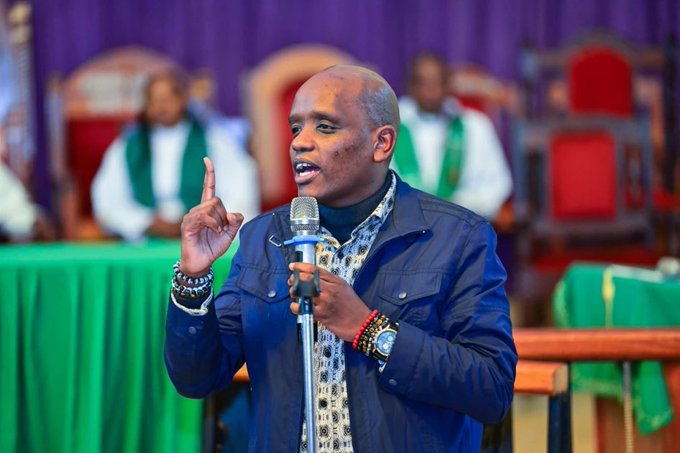NAIROBI, Kenya — When high school drama becomes real-life drama, it shouldn’t involve teargas.
That’s the message Dennis Itumbi, Head of Presidential Special Projects and Creative Economy, delivered this week in a public apology to students of Butere Girls High School, following a police clash that has sparked national outrage.
Appearing on Citizen TV’s JKLive Wednesday night, Itumbi addressed the incident in which police officers lobbed teargas at students exiting the National Drama Festivals held at Kirobon Girls High School in Nakuru.
The chaos unfolded after the students opted out of performing their play Echoes of War, following the sudden and controversial arrest of its writer — former Kakamega Senator Cleophas Malala — just hours earlier.
Echoes of War wasn’t just a typical high school play. The production tackled loaded themes — bad governance, impunity, and the generational disconnect between Kenya’s youth and its leadership.
The content reportedly didn’t sit well with some in government, leading to what appears to be quiet censorship at the national level.
Despite having made it through the rigorous county and regional competitions, the Butere Girls team never got the national spotlight their work had earned. After Malala’s arrest, the students, citing distress and protest, chose not to perform.
Their silent protest was met with force — quite literally.
Dennis Itumbi: On behalf of the government, I apologies to all the girls of Butere Girls for the teargas that was meted on them. We are not only sorry for the teargas but also for not managing this to the very end. I promise to sit down with my team and come up with remedies on
“I Sincerely Apologize”: Itumbi Takes Responsibility
On live TV, Itumbi didn’t hold back. “Let me take this with the full honour of government and apologise to all the girls of Butere Girls who must be watching this conversation for the teargas that was meted on them,” he said.
“We’re not only sorry for that teargas, but also for failing to manage the situation to the very end.”
He acknowledged that the students had worked hard to reach the national stage — and that they, and their message, deserved to be heard.
Itumbi committed to reviewing how such incidents are handled in the future, especially in the creative sector. “We’ll go back to the drawing board,” he promised, “and come up with remedies so this never happens again.”
Sorry for teargassing Butere Girls.President Ruto’s adviser Dennis Itumbi has apologized on national television over the recent mistreatment of Butere Girls students- over their Echoes of War play.The girls were subjected to tear gassing after they only sang the national
Adding to the social media buzz were rumors that teachers from Butere Girls, including the school’s principal, were facing government reprisals for allowing the play to be produced in the first place. Itumbi dismissed these claims.
“That’s a social media creation,” he clarified. “The principal, if my facts are correct, is retiring in two months. She’s had an outstanding career. We’ll allow her to finish her call of duty.”
He was clear: the government is not seeking revenge — just reflection.
This story isn’t just about one high school play — it’s about freedom of expression, youth agency, and the fine line between art and activism in Kenya.
The incident has opened a broader conversation about whether student voices are being heard — or silenced — when they speak truth to power.




